Abstract
The problem of ascertainment in segregation analysis arises when families are selected for study through ascertainment of affected individuals. In this case, ascertainment must be corrected for in data analysis. However, methods for ascertainment correction are not available for many common sampling schemes, e.g., sequential sampling of extended pedigrees (except in the case of "single" selection). Concerns about whether ascertainment correction is even required for large pedigrees, about whether and how multiple probands in the same pedigree can be taken into account properly, and about how to apply sequential sampling strategies have occupied many investigators in recent years. We address these concerns by reconsidering a central issue, namely, how to handle pedigree structure (including size). We introduce a new distinction, between sampling in such a way that observed pedigree structure does not depend on which pedigree members are probands (proband-independent [PI] sampling) and sampling in such a way that observed pedigree structure does depend on who are the probands (proband-dependent [PD] sampling). This distinction corresponds roughly (but not exactly) to the distinction between fixed-structure and sequential sampling. We show that conditioning on observed pedigree structure in ascertained data sets obtained under PD sampling is not in general correct (with the exception of "single" selection), while PI sampling of pedigree structures larger than simple sibships is generally not possible. Yet, in practice one has little choice but to condition on observed pedigree structure. We conclude that the problem of genetic modeling in ascertained data sets is, in most situations, literally intractable. We recommend that future efforts focus on the development of robust approximate approaches to the problem.
Full text
PDF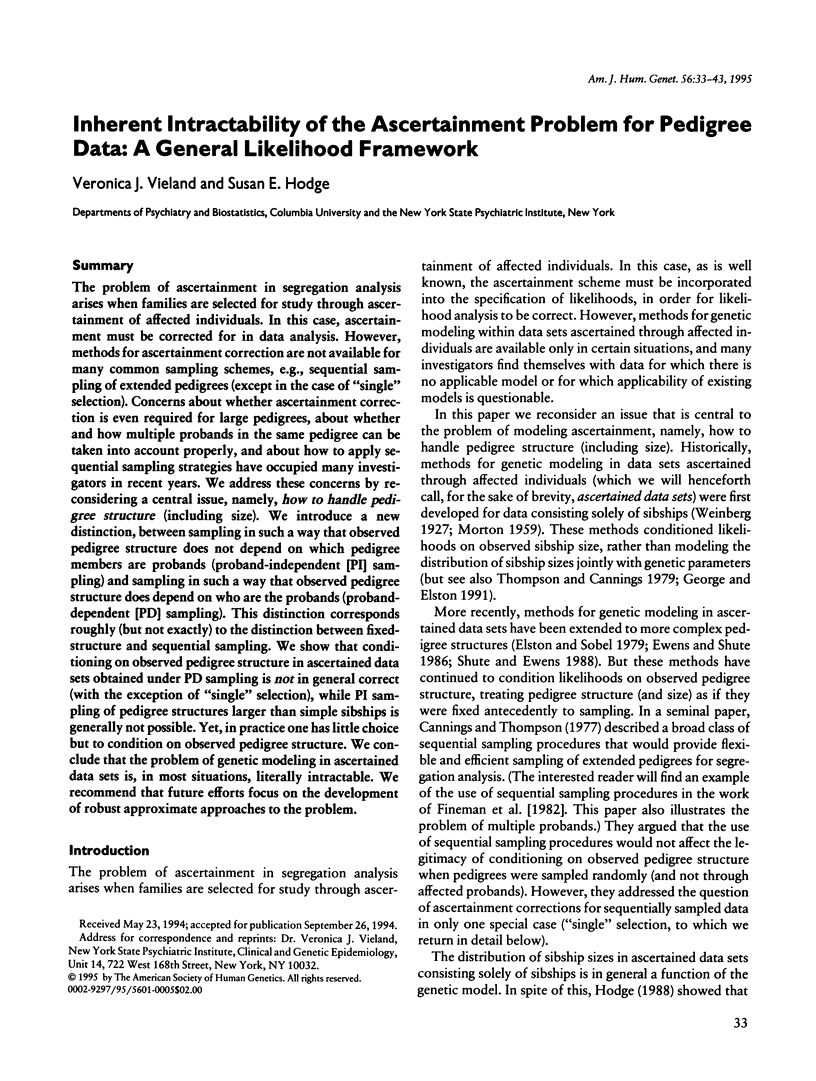
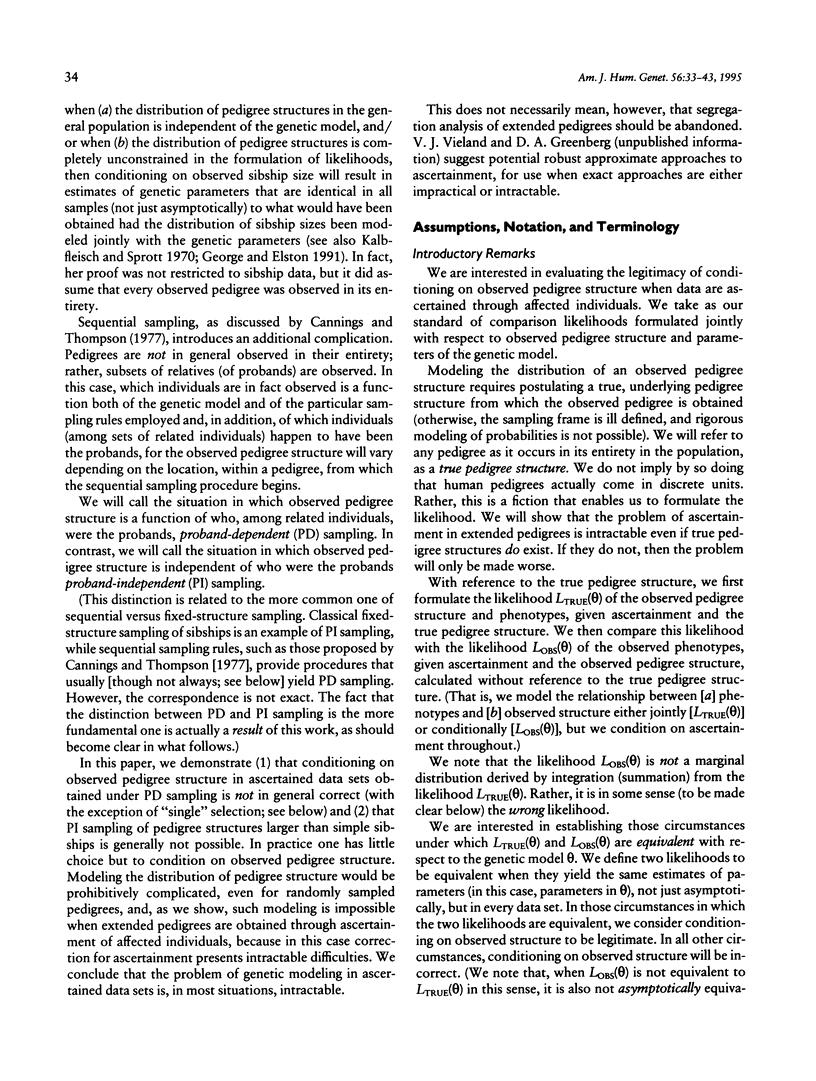
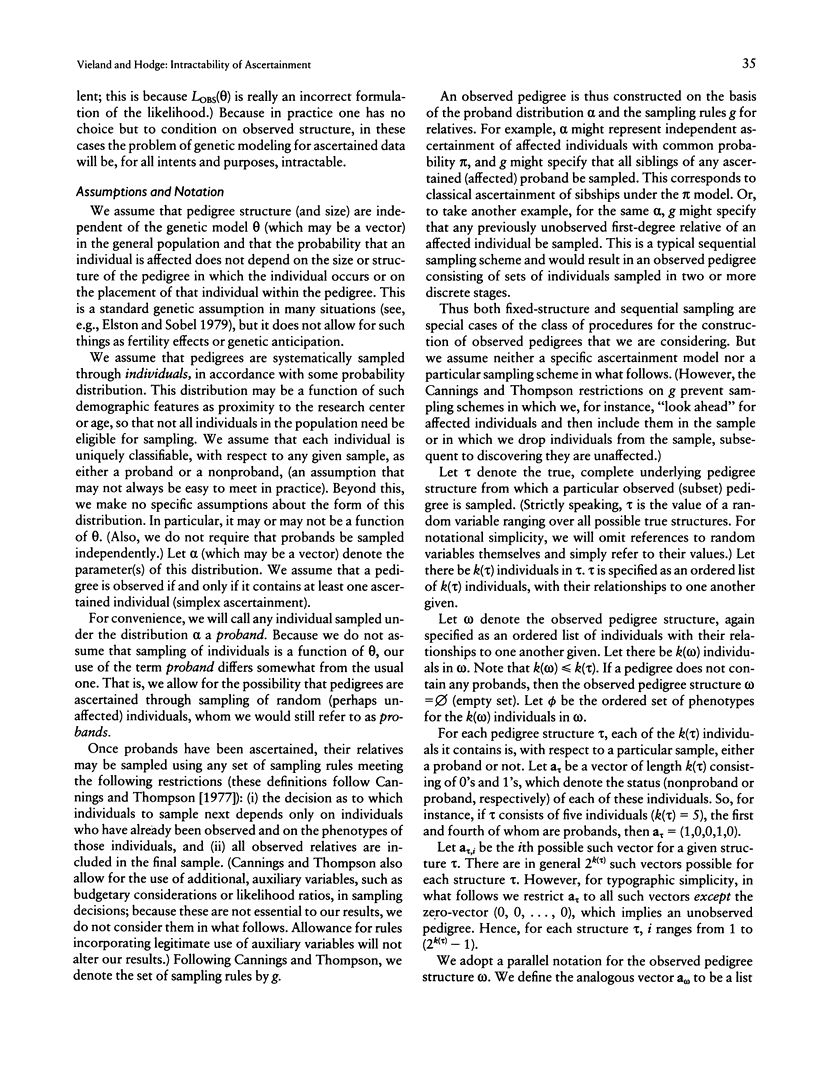

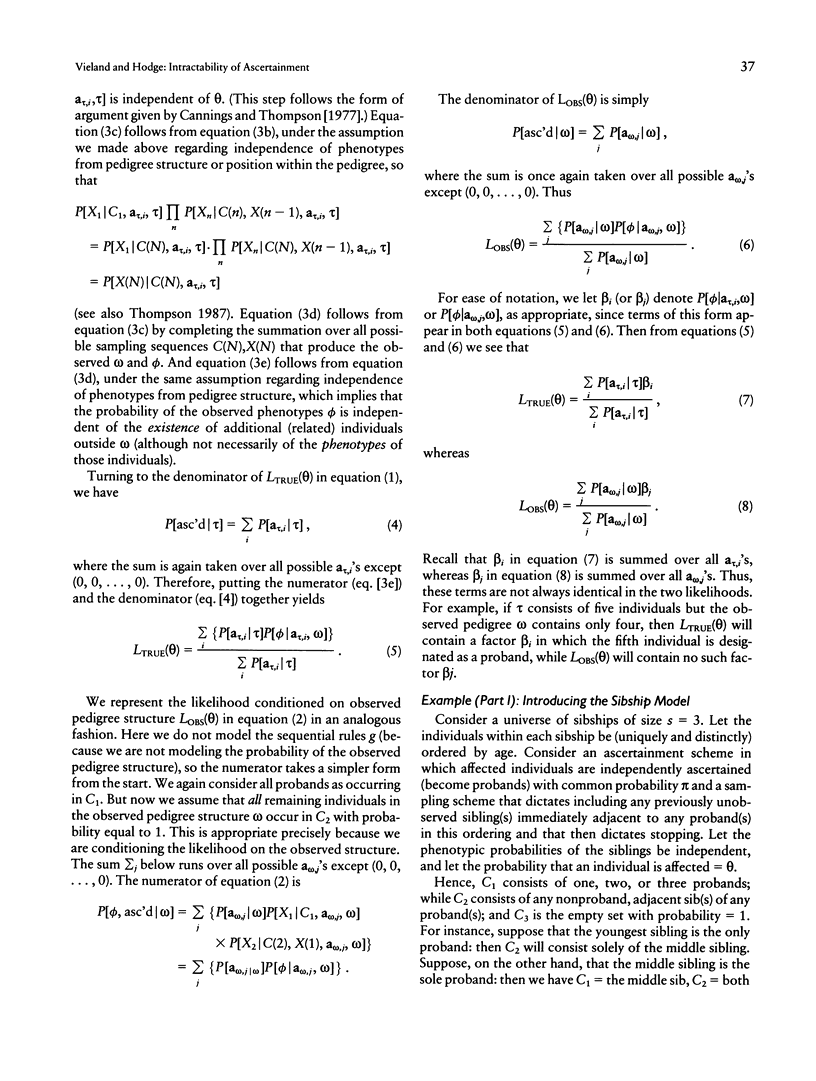
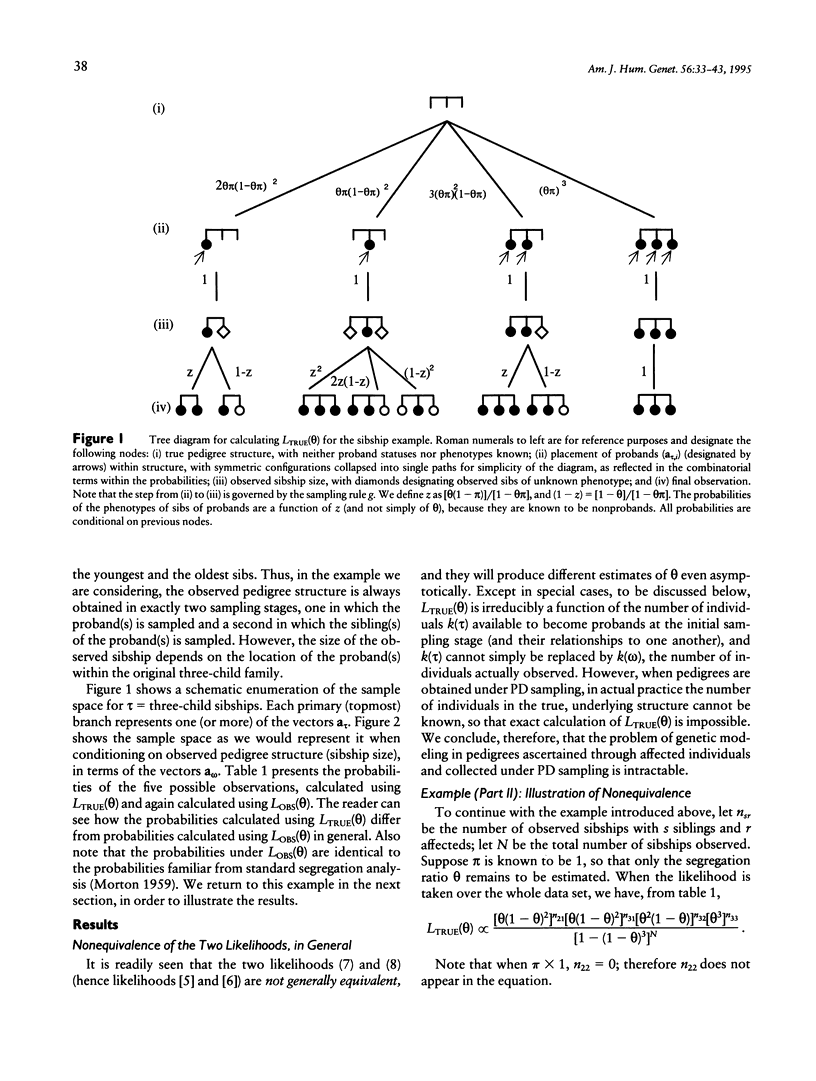
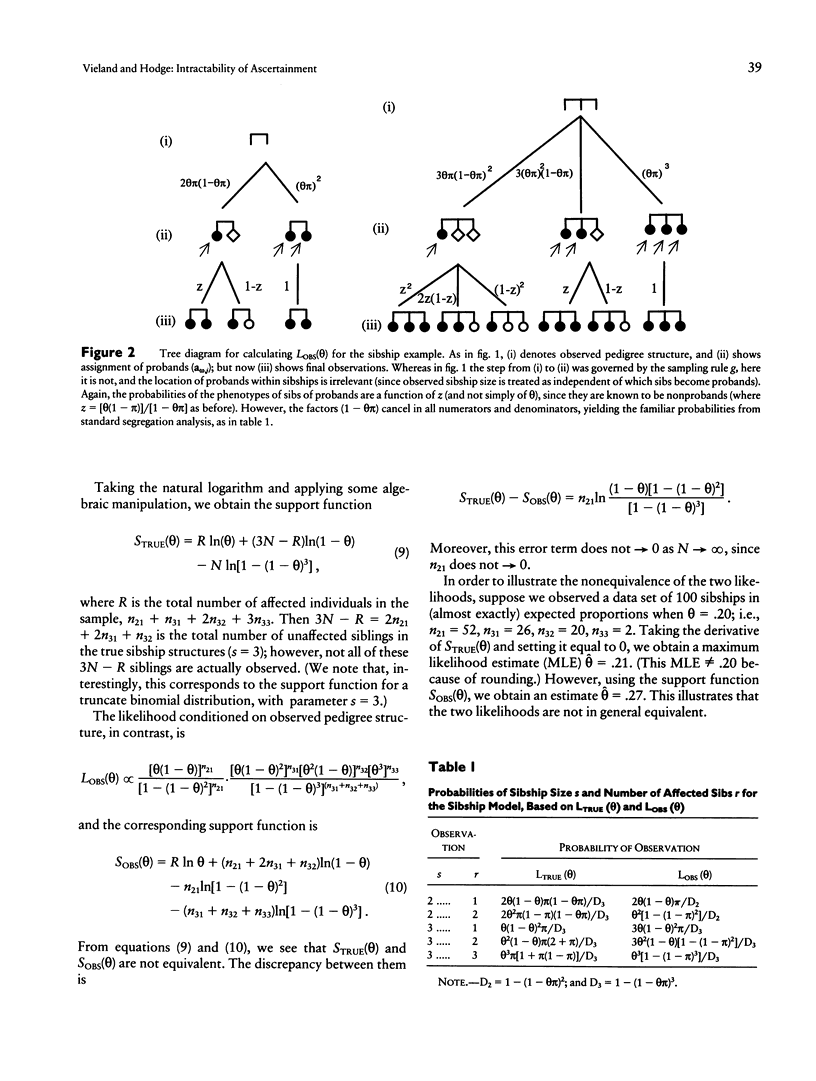
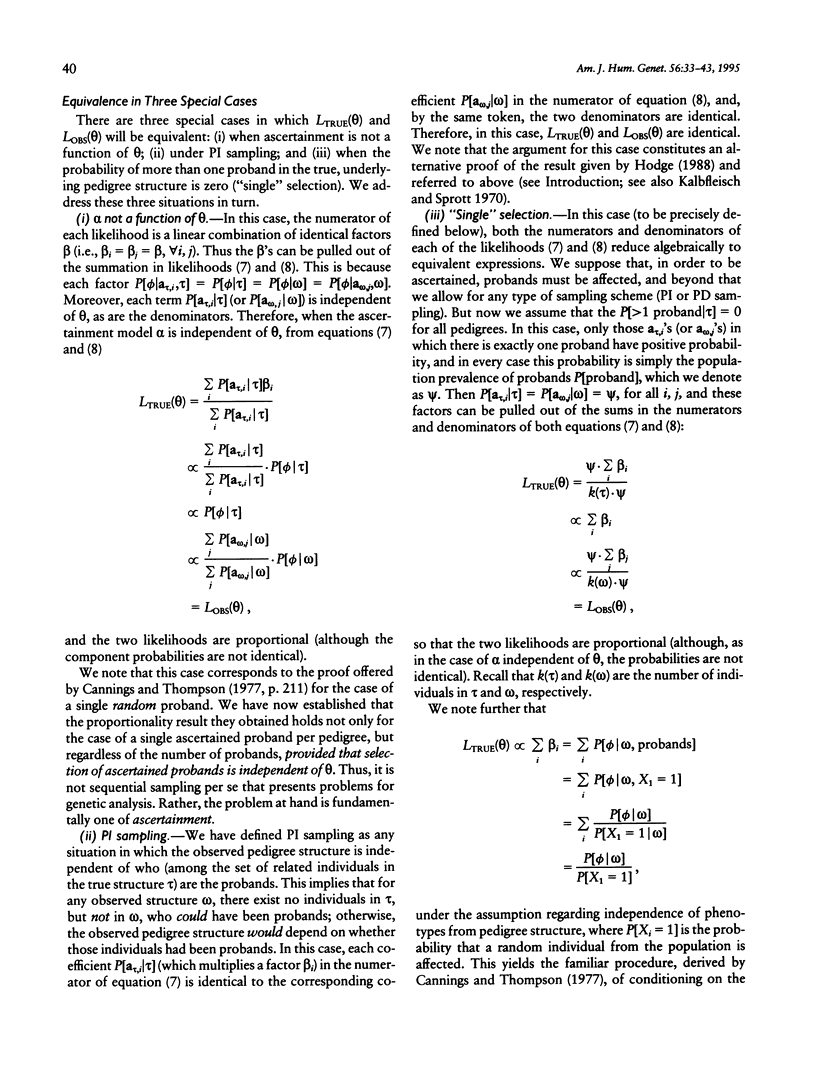
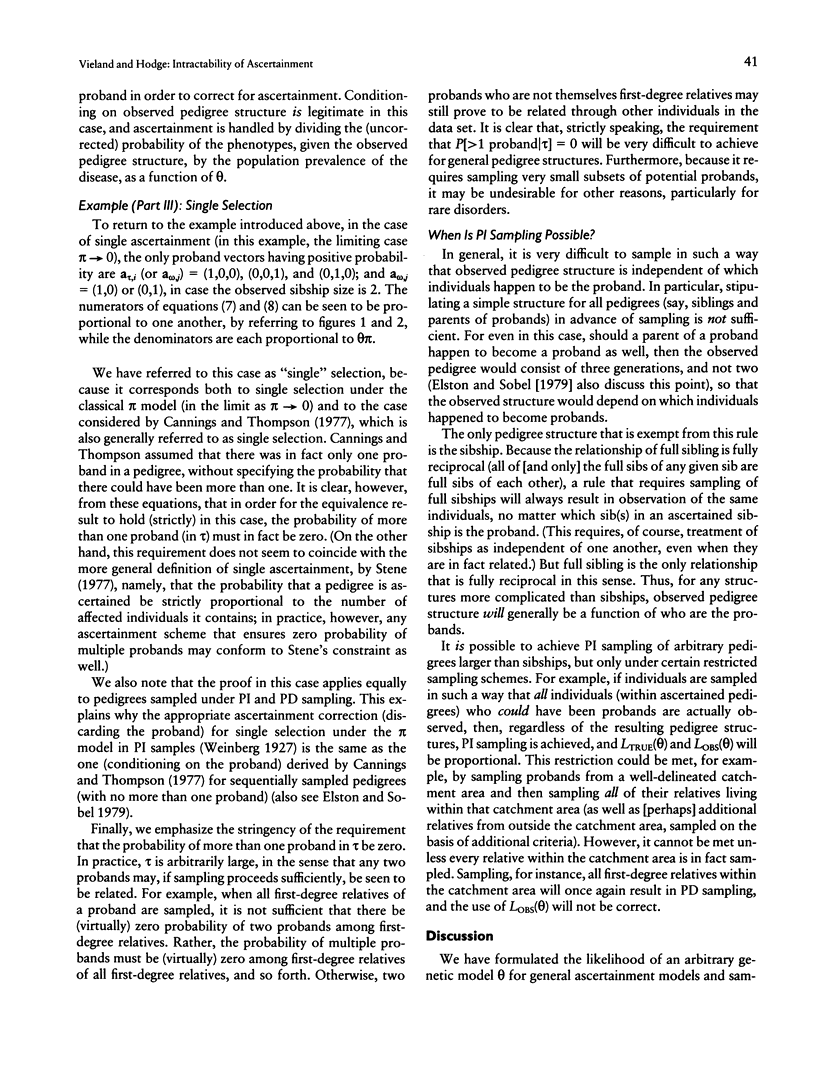

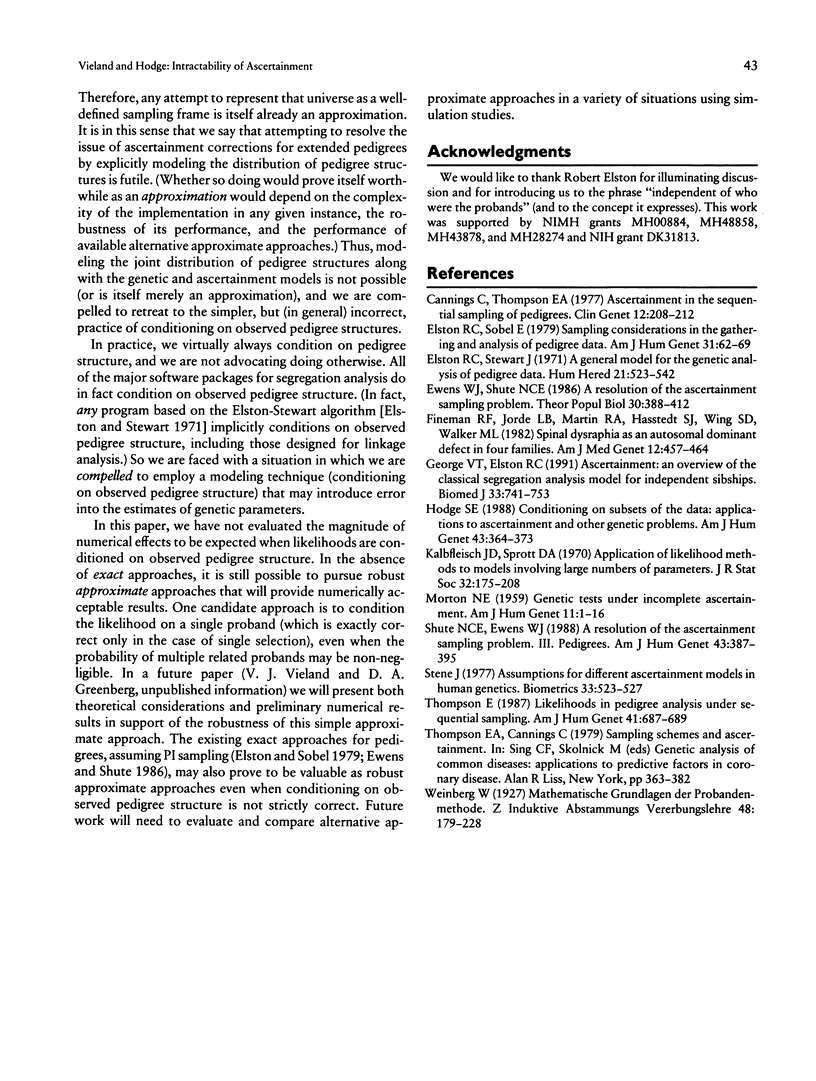
Selected References
These references are in PubMed. This may not be the complete list of references from this article.
- Cannings C., Thompson E. A. Ascertainment in the sequential sampling of pedigrees. Clin Genet. 1977 Oct;12(4):208–212. doi: 10.1111/j.1399-0004.1977.tb00928.x. [DOI] [PubMed] [Google Scholar]
- Elston R. C., Sobel E. Sampling considerations in the gathering and analysis of pedigree data. Am J Hum Genet. 1979 Jan;31(1):62–69. [PMC free article] [PubMed] [Google Scholar]
- Elston R. C., Stewart J. A general model for the genetic analysis of pedigree data. Hum Hered. 1971;21(6):523–542. doi: 10.1159/000152448. [DOI] [PubMed] [Google Scholar]
- Ewens W. J., Shute N. C. A resolution of the ascertainment sampling problem. I. Theory. Theor Popul Biol. 1986 Dec;30(3):388–412. doi: 10.1016/0040-5809(86)90042-0. [DOI] [PubMed] [Google Scholar]
- Fineman R. M., Jorde L. B., Martin R. A., Hasstedt S. J., Wing S. D., Walker M. L. Spinal dysraphia as an autosomal dominant defect in four families. Am J Med Genet. 1982 Aug;12(4):457–464. doi: 10.1002/ajmg.1320120409. [DOI] [PubMed] [Google Scholar]
- Hodge S. E. Conditioning on subsets of the data: applications to ascertainment and other genetic problems. Am J Hum Genet. 1988 Oct;43(4):364–373. [PMC free article] [PubMed] [Google Scholar]
- MORTON N. E. Genetic tests under incomplete ascertainment. Am J Hum Genet. 1959 Mar;11(1):1–16. [PMC free article] [PubMed] [Google Scholar]
- Shute N. C., Ewens W. J. A resolution of the ascertainment sampling problem. III. Pedigrees. Am J Hum Genet. 1988 Oct;43(4):387–395. [PMC free article] [PubMed] [Google Scholar]
- Thompson E. Likelihoods in pedigree analysis under sequential sampling. Am J Hum Genet. 1987 Oct;41(4):687–689. [PMC free article] [PubMed] [Google Scholar]
- Williams J. S., Stene J. Assumptions for different ascertainment models in human genetics. Biometrics. 1977 Sep;33(3):523–527. [PubMed] [Google Scholar]


